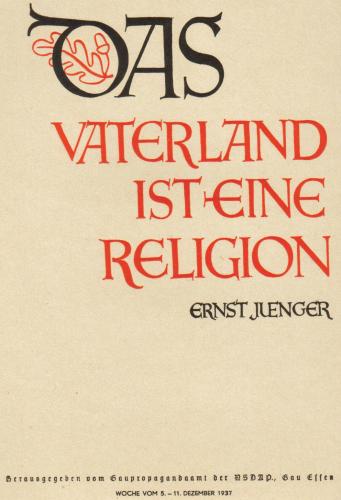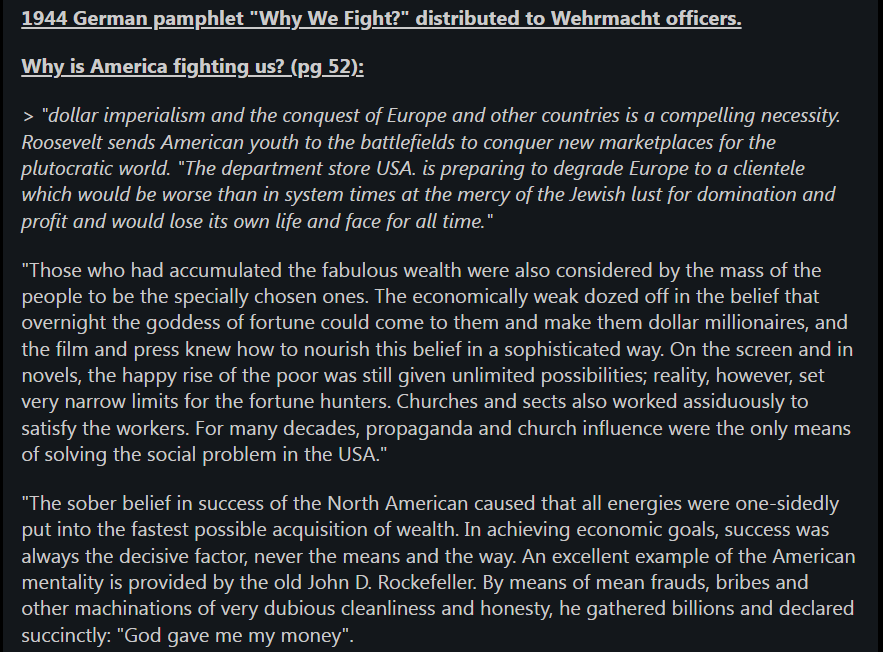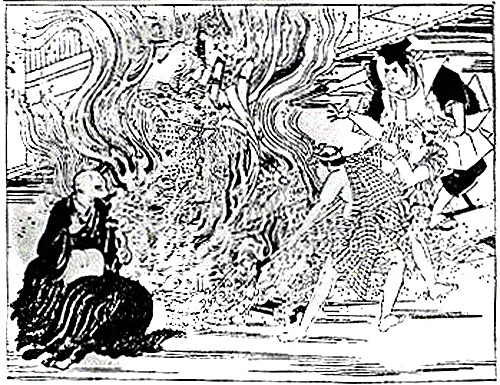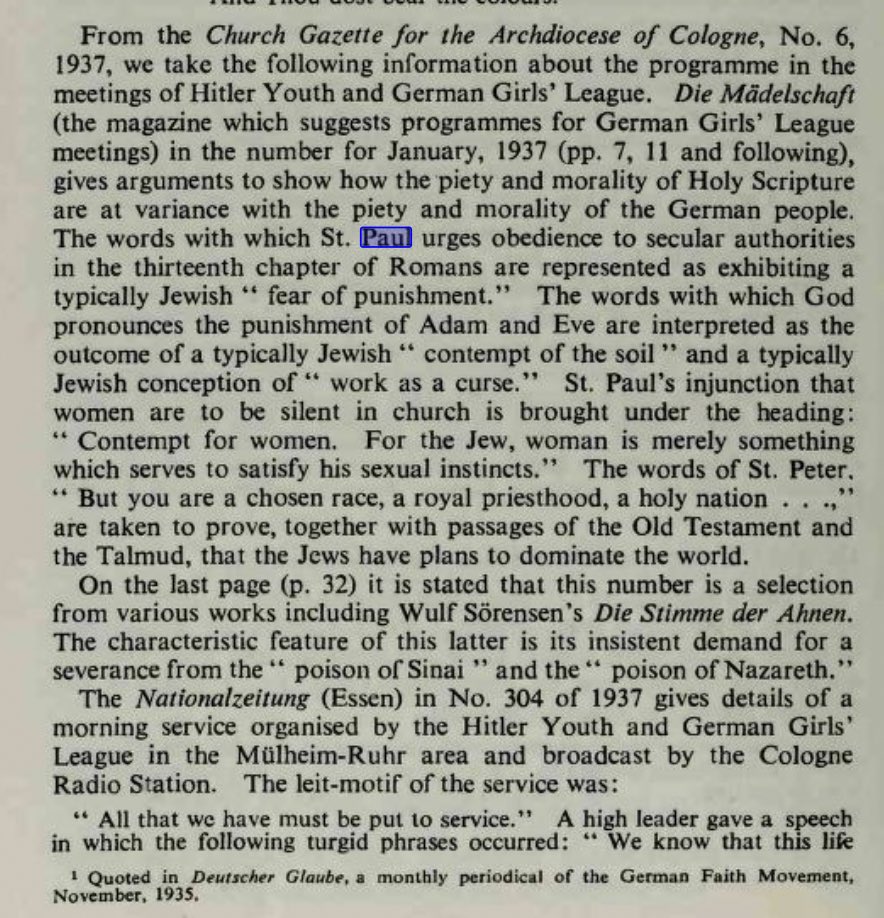Petr
Administrator
When the Romans could no longer fight well enough, when they began to rely on barbarian recruits and mercenaries for their protection (and this took place well before the ascendancy of Christianity; already by the 2nd century AD there were almost no Italians left serving in the legions), then they were inevitably doomed - old-school macho Romans like Cato the Elder would have agreed that if the Romans would ever cease to be "sons of Mars," there really would be no more purpose for their existence.
I think this point deserves further elaboration, for one of the most common (and effective) right-wing arguments against Christianity is simply the sophisticated form of this schoolyard taunt: "Christianity is for wimps." Or in other words, that Christianity promotes unmanly attitudes. That Christians can't fight well.
Jean-Jacques Rousseau (an ambiguous figure whose ideas have influenced both Far Left and Far Right) made this accusation in a clear, explicit manner in his book The Social Contract:

The Social Contract & Discourses
www.gutenberg.org
Under the pagan emperors, the Christian soldiers were brave; every Christian writer affirms it, and I believe it: it was a case of honourable emulation of the pagan troops. As soon as the emperors were Christian, this emulation no longer existed, and, when the Cross had driven out the eagle, Roman valour wholly disappeared.
This was nice rhetoric (Rousseau was nothing if not an effective wordsmith), but any objective examination of historical evidence shows that the Roman people (understood in the old-school sense, the peoples of the Italian peninsula) had lost their warlike spirit already centuries before Constantine. And not because of spreading Christian piety, but because of the preference for soft material comfort (which is why pagan moralists had always opposed Epicurean hedonism, as detrimental to military spirit).
For ever since Augustus re-organized the empire and fixed its borders - and replaced the citizen army with mercenary recruits! - the burden of actual fighting fell more and more on the tough frontier peoples living on the Rhine and the Danube; above all others, it was especially the Illyrians, who were still hostile barbarians in the days of Augustus, who won the Roman Empire its victories in the 2nd and 3rd centuries AD:
Italians became the minority in the Senate by the end of the second century. The proportion of Italian soldiers in the legions dropped even faster. Already the minority under Vespasian, they almost vanished a century later.42
But this was really the inevitable "dark side" of the celebrated Pax Romana - simply put, the longer peace lasted within the empire, the softer its peoples became! And one of the most fundamental insights of Fascist worldview is that too much civilization, too much peace and order, is a bad thing because it dilutes raw primitive strength.
The 3rd century historian Herodian of Antioch spelled it out in his description on the Roman civil wars of the 190s AD:
Herodian 2.11 - Livius
[2.11.3] After crossing Pannonia, Severus came to the mountains of Italy; outstripping the news of his approach, he appeared in person to the people there before they had heard that he was emperor or that he was on his way to Rome. The cities of Italy regarded the approach of this formidable army with apprehension. The men of Italy, long unused to arms and war, were devoted to farming and peaceful pursuits.
[2.11.4] As long as Roman affairs were governed by republican principles and the senate selected the generals who took charge of military affairs, all the Italians were under arms, and controlled the lands and the seas, waging wars with Greeks and barbarians. There was no place on earth, no place under heaven, to which the Romans did not extend the borders of their empire.
[2.11.5] From the time when Augustus assumed control of the government, however, the princeps freed the Italians from the necessity of working and of bearing arms; establishing forts and camps for the defense of the empire, he stationed mercenaries in these to serve as a defensive bulwark on the frontiers. The empire was further protected by great barriers of rivers and mountains and impassable deserts.
[2.11.6] When the people of Italy learned that Severus was approaching with a huge army, they were understandably dismayed by the unexpectedness of this development. Not daring to oppose him or try to stop him, they took up laurel branches and went out to meet him, welcoming him with open gates.
And what Septimius Severus did in the 190s, the Visigoth king Alaric did about 200 years later - once he had managed to break through the frontier defences, the people of Italy could not resist him in any meaningful manner.
Even the Leftist historian Will Durant observed:
THE LAST DAYS OF A GOD - Augustan Statesmanship 30 B.C..-A.D. 14 - THE PRINCIPATE 30 B.C.-A.D. 192 - Caesar and Christ - by Will Durant
THE LAST DAYS OF A GOD - Augustan Statesmanship 30 B.C..-A.D. 14 - THE PRINCIPATE 30 B.C.-A.D. 192 - Caesar and Christ: A History of Roman Civilization and of Christianity from Their Beginnings to A.D. 325 - by Will Durant
The very peace that Augustus had organized, and the security that he had won for Rome, had loosened the fibre of the people. No one wanted to enlist in the army, or recognize the inexorable periodicity of war. Luxury had taken the place of simplicity, sexual license was replacing parentage; by its own exhausted will the great race was beginning to die.
And again, it had emphatically not been devout Christians who had driven this change in Roman attitudes:
THE AMOROUS REVOLT - The Golden Age 30 B.C.-A.D. 18 - THE PRINCIPATE 30 B.C.-A.D. 192 - Caesar and Christ - by Will Durant
THE AMOROUS REVOLT - The Golden Age 30 B.C.-A.D. 18 - THE PRINCIPATE 30 B.C.-A.D. 192 - Caesar and Christ: A History of Roman Civilization and of Christianity from Their Beginnings to A.D. 325 - by Will Durant
These ancient themes might not have harassed Augustus; what made Tibullus, Propertius, and Ovid really disagreeable to a government that was finding it hard to enlist recruits for the army was the persuasive anti-militarism of this love-loose set. Tibullus laughs at warriors who forage for death when they might have been seducing women. He mourns for the age of Saturn, when, he imagines,
there were no armies, no hatred, and no war. . . . There was no war when men drank from wooden cups. . . . Give me but love, and let others go to war. . . . The hero is he whom, when his children have been begotten, old age overtakes in his humble cottage. He follows his sheep, his son follows the lambs, while the good wife heats the water for his weary limbs. So let me live till the white hairs glisten on my head, and I tell in my old man’s fashion of the days gone by.71
Last edited:


















